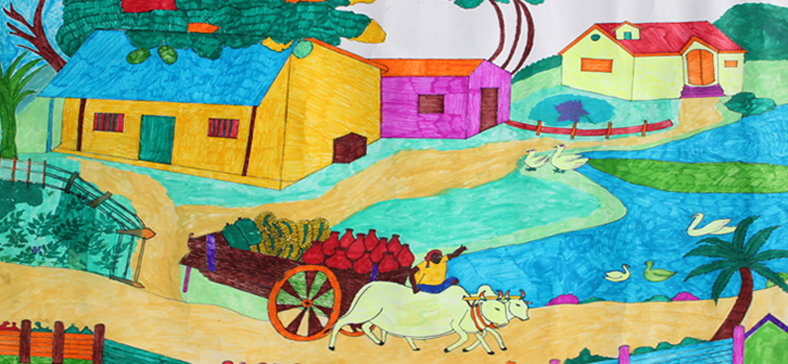Governance – Right to Information
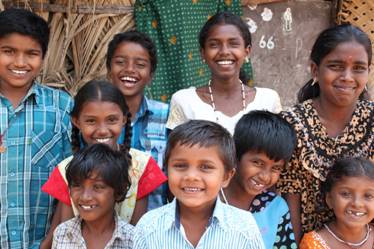 Project on increasing negotiating skills of rural & tribal communities using RTI Act of India.
Project on increasing negotiating skills of rural & tribal communities using RTI Act of India.
LEAF Society is implementing a project ‘increasing negotiating skills of rural &tribal communities in accessing their rights, entitlements and demands from various government schemes and social safety nets schemes’ in 25 villages from Namakkal district of Tamilnadu, India. This project covers Rasipuram, Namakkal and Kolli Hills region of Namakkal district of Tamilnadu, India. This project is being supported by Affiliated Network of Social Accountability of South Asia Region, Dhaka for 18 months. The goal of the project is,
Project Objectives
- To empower, educate & build capacities of locally vulnerable, marginalized & poor communities from 20 villages of Namakkal district of Tamilnadu, India in claiming, demanding & negotiating their entitlements and rights in Government programmes, social safety nets such as NREGA, NRHM, PDS, SC & ST welfare, Rural Development, road safety and water & Sanitation programmes.
- To fight against corruption by increasing the level of understanding of women leaders, youth groups, teachers, children & Panchayat raj institutions members and making them actively participate in the process of ensuring transparency in all Government projects & welfare schemes in 20 village level panchayats of Namakkal district of Tamilnadu through RTI instrument.
- To build & be part of Social Accountability networks & alliances for supporting community initiatives & institutions in promoting & strengthening their ‘responsible citizenship’ in Namakkal district of Tamilnadu.
Project Strategies to Attain Objectives
The fundamental objective of the project activity is to empower or educate the local communities, those of vulnerable, marginalized, excluded - through innovative campaign, capacity building workshops, and creating a wide spread sustainable awareness and education on Right to Information Act and its salient features. This project aims to address the issue of corruption, fight against it, achieve the maximum level of transparency and try to achieve stake holder’s Rights & entitlements in various developmental schemes of State & central Governments. This is a specific and time bound project aims to increase the level of awareness and utility of the powerful instrument ‘Right To Information ‘Act. This project is in two phases, the first phase will increase the level of awareness among stake holders on RTI, it’s advantages in acquiring the information about various projects, schemes of Government and the second stage will be more on action on the RTI. The second stage will facilitate the stake holders to use the RTI instrument at village levels, block levels, district and state levels, to ensure transparency on various schemes like, National Rural Employment Guarantee Act – NREGA, Public Distribution System – PDS, NRHM, SC/ST welfare schemes, Rural development Projects, District Rural Development Project’s – DRDA’s. Through, this, we aim to create a highly responsible, sensitive – village level institutions at 20 villages including women, youth, teachers, Panchayat Raj Institution members & Children.
Attitudinal change among communities:
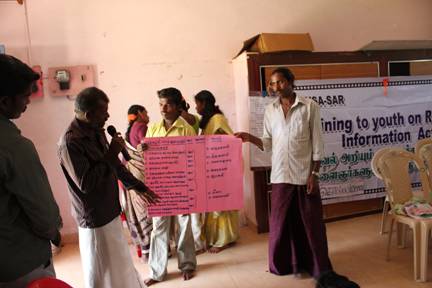 The framework for responsible citizenship and national regeneration has been laid down in the Indian Constitution in three parts. Part III of the Constitution deals with Fundamental Rights, Part IV with the Directive Principles of State Policy and Part IVA with the Fundamental Duties. The Fundamental Rights are basic human rights which the State recognizes and provides for their enforcement. The Fundamental Duties are moral obligations of all citizens and are specifically intended to promote responsible citizenship and national unity and harmony. We often harp on our rights but neglect and may even be unaware of our duties.
The framework for responsible citizenship and national regeneration has been laid down in the Indian Constitution in three parts. Part III of the Constitution deals with Fundamental Rights, Part IV with the Directive Principles of State Policy and Part IVA with the Fundamental Duties. The Fundamental Rights are basic human rights which the State recognizes and provides for their enforcement. The Fundamental Duties are moral obligations of all citizens and are specifically intended to promote responsible citizenship and national unity and harmony. We often harp on our rights but neglect and may even be unaware of our duties.
The role of responsible citizenship does not conclude with just exercising their franchise during election and however, it also in terms of participating in the democratic process, fight against corruption and bring justice & equity to all. By this project, we shall bring an attitudinal change or shift among 20 village communities, encourage their participation in the RTI movement and bring a strong sense of solidarity towards more accountable system. Our training programmes, media campaign, village level awareness programmes, intensive activities shall bring the change among communities and since, there are children of 12-18 years of age are also being trained, we hope, when they became adult, shall fight against corruption in a more effective and systematic manner.
Institution building:
All our efforts in the project shall be linked with an institution and not on any individuals. We are including 200 women from 20 SHG’s from 20 village, youth from village level youth associations, children from child parliaments, Panchayat Raj Institutions, village level watsan committee, Parent Teachers Associations – PTA’s, village health & education committees, etc. Our project activities shall be linked with any one of the above mentioned associations and shall imbibe as ‘institutionalized’ initiatives and not as individual activities. We are training and including members from such institutions at village level, Panchayat levels, block and district levels in to the programme and our RTI applications filings, appeals, follow up, advocacy and lobbying shall be done through these initiatives
Activities of the project:
Village level RTI awareness programme:
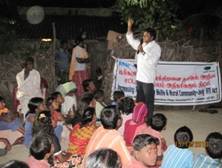 LEAF Society has commenced its intensive village level RTI awareness programmes in many villages, to increase, the sensitivity and level of awareness among poor, rural & tribal communities on Right to Information act. These campaigns includes various culturally oriented – folk songs, folk dances, street theatre, movies, plays, songs, Power point presentations and other highly relevant and innovative campaign methods. We have developed an exclusive folk team, which were highly skilled and committed towards sensitizing the rural and tribal communities. We have completed village level awareness programme in all villages of Namakkal. We have covered 20 villages under these campaigns.
LEAF Society has commenced its intensive village level RTI awareness programmes in many villages, to increase, the sensitivity and level of awareness among poor, rural & tribal communities on Right to Information act. These campaigns includes various culturally oriented – folk songs, folk dances, street theatre, movies, plays, songs, Power point presentations and other highly relevant and innovative campaign methods. We have developed an exclusive folk team, which were highly skilled and committed towards sensitizing the rural and tribal communities. We have completed village level awareness programme in all villages of Namakkal. We have covered 20 villages under these campaigns.
RTI sensitization programme among Tribal communities:
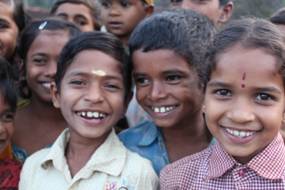 LEAF Society has reached the most deserving – vulnerable tribal communities of Kolli Hills from Namakkal district fo Tamilnadu. We have identified the villages, which has limited access by road and no four wheeler could reach the place. These villagers for the first time in their life have listen to such useful campaigns on Right to Information Act of India and we hope, they will make use of RTI act in their life.
LEAF Society has reached the most deserving – vulnerable tribal communities of Kolli Hills from Namakkal district fo Tamilnadu. We have identified the villages, which has limited access by road and no four wheeler could reach the place. These villagers for the first time in their life have listen to such useful campaigns on Right to Information Act of India and we hope, they will make use of RTI act in their life.
RTI sensitization for College Students:
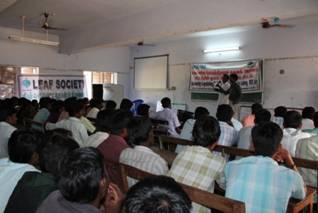 LEAF Society, is reaching many youth & college students from rural areas. We have identified some of the rural & tribal pockets of Namakkal district and conducting such programmes for college students. These campaigns are different from village level campaigns, as we have utilized different level of materials and strategies for college students. We hope, college youth, will come forward to join in the movement of LEAF Society – against corruption and increase sensitivity of RTI act among communities. This programme have been attended by more than 180 youth.
LEAF Society, is reaching many youth & college students from rural areas. We have identified some of the rural & tribal pockets of Namakkal district and conducting such programmes for college students. These campaigns are different from village level campaigns, as we have utilized different level of materials and strategies for college students. We hope, college youth, will come forward to join in the movement of LEAF Society – against corruption and increase sensitivity of RTI act among communities. This programme have been attended by more than 180 youth.
Training to Rural Youth on increasing their negotiating skills using RTI
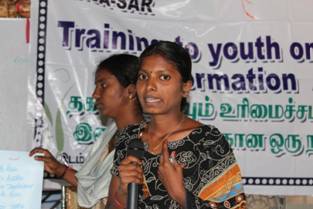 It was strategically planned that, after initial sensitization, village level awareness programmes, we would focus on imparting training to selected youth, women leaders and adolescent children on Right to Information and the way, RTI can be used to access various government programmes. We have identified village level youngsters and have trained them on RTI, how to fight corruption using RTI and how to increase their negotiating skills in government schemes using RTI. So, far we have trained two batches of youth from Namakkal in which 40 youth have been trained. Rural youth have expressed their happiness and thankfulness for LEAF for such useful training and project. Apart from the trainings we are also following up the RTI applications in the villages.
It was strategically planned that, after initial sensitization, village level awareness programmes, we would focus on imparting training to selected youth, women leaders and adolescent children on Right to Information and the way, RTI can be used to access various government programmes. We have identified village level youngsters and have trained them on RTI, how to fight corruption using RTI and how to increase their negotiating skills in government schemes using RTI. So, far we have trained two batches of youth from Namakkal in which 40 youth have been trained. Rural youth have expressed their happiness and thankfulness for LEAF for such useful training and project. Apart from the trainings we are also following up the RTI applications in the villages.
Adolescent children’s training on RTI:
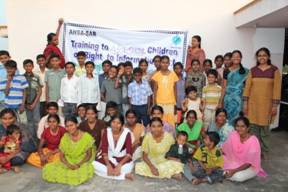
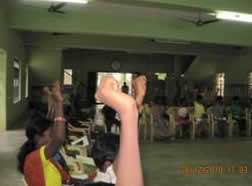
We have so far completed four batches of training for adolescent children from Namakkal and Rasipuram blocks of Namakkal district and 119 children have been part of the trainings. We have also made sure that gender equity is maintained in all our trainings. Most of the issues identified and needs to be addressed among all categories like women leaders, youth and children are – issues at their villages and in their streets. It was observed that, it was repeatedly discussed about the issues of water, sanitation, waste disposal, roads, electricity, public distribution system, transportation, etc. All the group work exercises in the trainings are mainly focusing on these issues and most of the RTI applications are also prepared on these grassroots issues at their villages.
Women leaders training on RTI
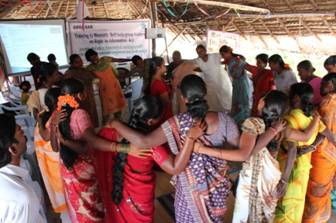 One of the most difficult parts of the project is to bring the women leaders from Women Self Help Groups- SHG’s to attend the RTI trainings. Because of the deep-rooted influence of Micro Finance in the villages, especially among SHG women, its being one of the most difficult task to bring them to the trainings. SHG women ask money to be paid for them to attend the training. The so called Self Help Group movement is became an exclusive money minded movement and not interested in any social or accountability initiatives. Wherever, we ask them to be part of such useful RTI training, they demand money to attend.
One of the most difficult parts of the project is to bring the women leaders from Women Self Help Groups- SHG’s to attend the RTI trainings. Because of the deep-rooted influence of Micro Finance in the villages, especially among SHG women, its being one of the most difficult task to bring them to the trainings. SHG women ask money to be paid for them to attend the training. The so called Self Help Group movement is became an exclusive money minded movement and not interested in any social or accountability initiatives. Wherever, we ask them to be part of such useful RTI training, they demand money to attend.
Multimedia toolkit on RTI:
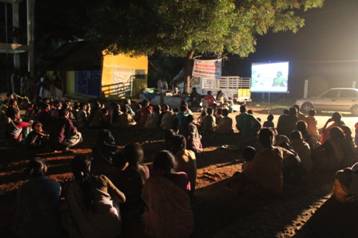 LEAF Society is also produced a multi media toolkit – exclusively on Right to Information. We have designed these tolls to reach various age groups of people from villages like adolescents, youth, Women and other community members. The multimedia tool kits are exclusive production of LEAF Society at zero budgets. The kit includes,
LEAF Society is also produced a multi media toolkit – exclusively on Right to Information. We have designed these tolls to reach various age groups of people from villages like adolescents, youth, Women and other community members. The multimedia tool kits are exclusive production of LEAF Society at zero budgets. The kit includes,
- Voice of Silence – Short film on RTI
- Five folk songs on RTI – Video
- A puppet show – video on RTI
- A villu paattu on RTI to reach rural & tribal population
- Booklet
- Training manual for youth, SHG members and Children on RTI
- Power points on RTI
Also see
- Training reports for adolescent children, youth and women
- Booklets on RTI
- Trainer’s training manual on RTI
- PowerPoint’s
- RTI baseline report
- Multimedia kit




